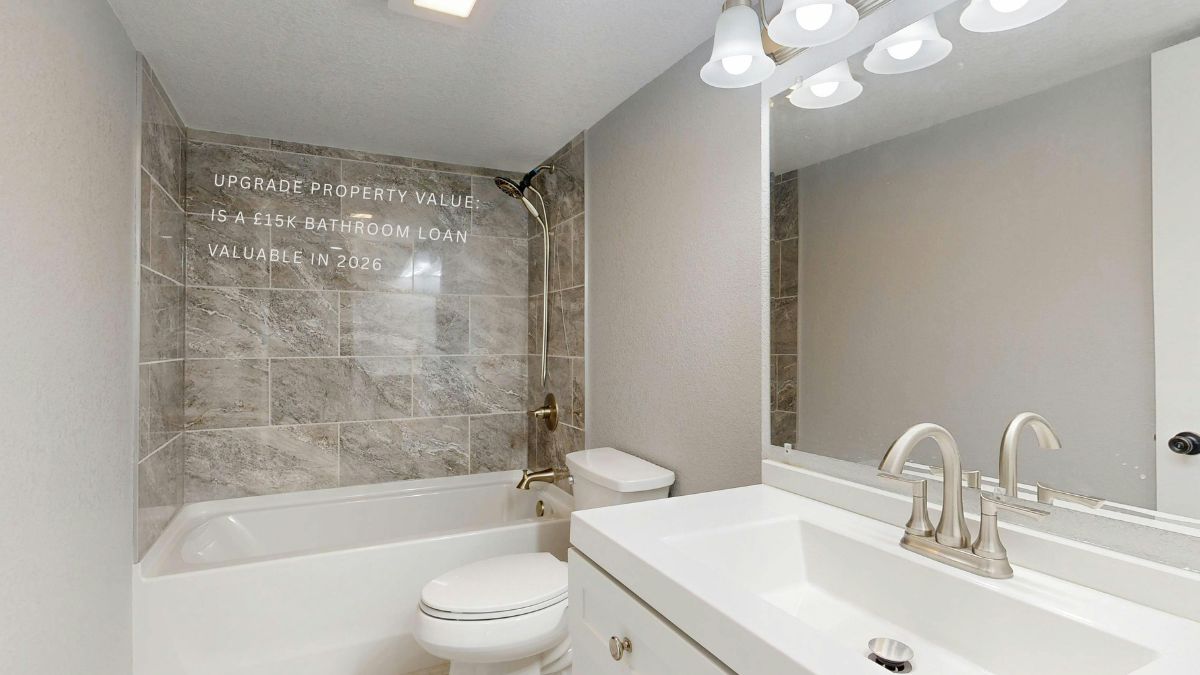A home renovation plan can be a great idea to transform your home. It works on the functionality to make it more advanced for your purposes. Suppose you are also looking for a home renovation and want extra money to simplify your experience. Get a loan to renovate a house. It will help if your funds are not enough to meet your expenses. Besides, you can optimise your finances by integrating the right strategies and solutions.
There are many loans that you can explore to revive your home, but there are some specific options to beautify your home and bring the charm. Know how to deal well with your place, and add on things that bring a sparkle. Making an impact on your space happens easily if you know the right loan options and everything in detail about them. So this time make an impact on your finances and move to the safe financial zone, letting you cover your most expenses at ease.
In the section below, you will find out the top loans that provide you with financial comfort and ease in managing your home renovation.
Types of loans to Plan Your Home Renovation Accurately!
Secured loans:
Secured loans are collateral-based loans available for larger amounts and longer durations. These are low-risk loans for lenders as they have the right to repossess the borrower’s asset in case of default. Getting loan approval is easy, but the value of collateral must be equal to the borrowed money.
How do secured loans work?
Lenders require an asset, like a home or a car, from the borrowers to secure the loan amount. By having collateral, they approve the loan applications at lower interest rates. You apply online with minimal documentation. There will be an instant decision, and the fund transfer will be done within 48 hours.
Pros of Secured Loans:
- Lower monthly instalments
- Affordable interest rates
- Higher loan approval
- Larger loan amount
Cons of Secured Loans:
- Risk of losing collateral if payments are missed
- Strict loan procedure.
- Stringent loan terms
- People with low credibility or income status might struggle.
| Features | Explanation |
| Fees | No upfront and early repayment fee. |
| Loan Term | 1 year to 10 years |
| Interest rate | 5.6% – 8% |
| Loan amount | £1000-£100,000 |
| Guarantor | Not Mandatory |
| Collateral | Required |
| Credit score | Ideal for those with bad credit |
| Best uses | Larger home improvement or renovation |
Guarantor loans:
Loans with a guarantor are helpful in getting the loan approval with the support of a person who guarantees the loan repayment on behalf of the primary borrower. When the borrower fails to clear the repayment cycle, the guarantor is required to pay off the amount.
How do guarantor loans work?
There is a guarantor involved in the loan procedure who covers the repayment cost when the borrower is unable to pay off. The risk to the lender is reduced as the guarantor assumes the responsibility of paying the pending loan amount. However, the guarantor must have a good credit score and be a homeowner.
Pros of Guarantor Loans:
- The loan approval chances are higher even in cases of low credibility issues and limited income.
- Fixed interest rates to budget the regular and irregular expenses.
Cons of Guarantor Loans:
- Stress of arranging a guarantor with good credibility
- No chance of keeping your financial situation confidential
- Relations with the guarantor may be ruined if you default
| Features | Explanation |
| Fees | No upfront and early repayment fee. |
| Loan Term | 6 months to 84 months |
| Interest rate | 8.5% – 10.90% |
| Loan amount | £1000-£50,000 |
| Guarantor | Required |
| Collateral | Not required |
| Credit score | For all types of credit scores |
| Best uses | Big home improvement projects |
Instant loans:
These quick loans are known for short-term repayment periods, varying from short to medium loan amounts. The interest rates on these loans are usually higher, but they include easy credit verification.
How do instant loans work?
These are typically online loans with no paperwork. No collateral is needed, but you need to prove your loan affordability with stable income. You get the loan approval on the same day.
Pros of Instant Loans:
- Easy to approve loans
- Loans end early due to shorter repayment tenure
- Ideal for getting urgent funding
Cons of Instant Loans:
- Higher interest rates
- Small loan amount
- Chance of being in a debt trap
| Features | Explanation |
| Fees | No early repayment fee, but a late repayment fee will be there |
| Loan Term | 3 months to 12 months |
| Interest rate | 14.5% – 20.01% |
| Loan amount | £1000-£5,000 |
| Guarantor | Not required |
| Collateral | Not required |
| Credit score | For all credit scores |
| Best uses | Small or urgent home improvements |
Unsecured Personal Loans:
These personal loans for home improvement are used for multiple purposes without requiring any collateral. These provide quick financial comfort and an adjustable repayment period.
How do unsecured personal loans work?
These are also online loans, and get approved on the same day. There is no need for a guarantor or collateral, but the interest rates will be higher. As they bring instant funding, you can manage critical kitchen or bathroom improvements.
Pros of Unsecured Personal Loans:
- These loans provide financial support in a considerable amount, which can also help in filling the funding gap during major home improvements.
- Loans are useful for multiple home renovation tasks.
Cons of Unsecured Personal Loans:
- Lower loan amount with higher monthly instalments.
- The interest rates might be higher than those of secured personal loans.
| Features | Explanation |
| Fees | No surprising costs and early repayment charges |
| Loan Term | 6 months to 60 months |
| Interest rate | 10.5% – 12.95% |
| Loan amount | £1000-£25,000 |
| Guarantor | Not mandatory |
| Collateral | Not required |
| Credit score | For both good and bad credit |
| Best uses | Small or medium level home improvements |
Bridging Loans:
Bridging loans are specifically used for property management purposes, including home renovation. With these loans, you can bridge the financial gaps while renovating at a budgeted amount. These loans may provide you with better and quick financial support as compared to remortgage.
How do bridging loans work?
Bridging loans are a type of secured loans where the borrower secure the borrowing amount with the same property. Generally, people use these loans to fill the gaps during property purchase. Still, they are equally useful for home renovation purposes.
Pros of Bridging loans:
- These loans provide meaningful access to your home renovation plan.
- The interest rates might be lower with collateral inclusion and good credit scores.
Cons of bridging loans:
- Risk of losing the collateral if default or missed payments occur.
- The approval depends on your ability to borrow and the value of the asset
| Features | Explanation |
| Fees | No early repayment fee and no origination fees |
| Loan Term | 6 months to 36 months |
| Interest rate | 6.5% – 9.95% |
| Loan amount | £1000-£25,000 |
| Guarantor | Not required |
| Collateral | Mandatory |
| Credit score | Ideal for individuals with poor credit |
| Best uses | Filling the funding gap during large home improvements |
Note: The interest rates mentioned above are just examples. The final rates depend upon the policies of the direct lenders and the individual financial conditions.
Conclusion
When you look for different types of home renovation loans in the direct lending world, your credit scores do not matter too much. But many loan providers offer smaller amounts at higher interest rates. So, your credibility matters, but you can still get funds according to your ability to borrow money.
In a nutshell, for every home improvement loan type, having a good credit score is always better. Otherwise, the loan cost will be high.
Description:

Sarah Jones is a seasoned financial writer with over a decade of experience covering personal finance loans, and dedicated to provide the best lending solutions to the clients. Known for translating complex financial topics into accessible insights, Sarah contributes to leading loan providers like Arbitrageloans and contributes to the company’s growth via professional writing and loan guidance. She holds a degree in economics and is passionate about helping aspirants with tools to make informed loan decisions. She also loves to explore the world and its natural beauty. Sarah believes financial literacy is the base of legitimate lending and borrowing. She strives to make it understandable for all.






